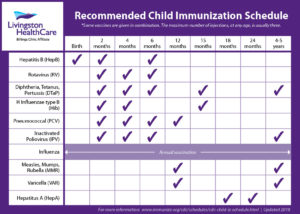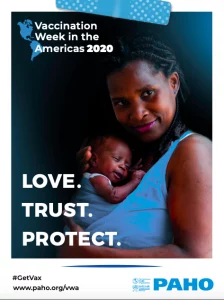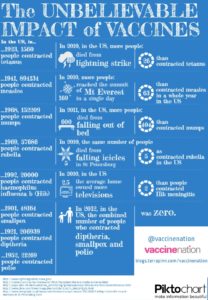Most parents are familiar with the “childhood vaccination schedule” – a detailed plan for when children should get certain immunizations that help protect them from preventable diseases. But as the list of recommended vaccines has grown over the years, so too has the list of questions parents have about vaccinations and vaccination schedules.
Those who wonder why vaccines are so vitally important is because they prevent so many diseases that in the past we couldn’t if you could save your child’s life you would well this is one way in doing it.
While some parents wonder if the number of vaccines and doses kids receive can ever be too much for their bodies to handle, the short answer is: No. Extensive research has been done to ensure the safety of vaccines for young immune systems. Kids are exposed to germs (or antigens) every day. The amount that they’re exposed to by getting a vaccine is just a tiny fraction of the antigens they encounter daily.
Know this to understand vaccines; a vaccine is a dead, or weakened version, or part of the germ that causes the disease in question. When children are exposed to a disease in vaccine form, their immune system, which is the body’s germ-fighting machine, is able to build up antibodies that protect them from contracting the disease if and when they are exposed to the actual disease.
Immunizing helps to protect the health of our community – especially those who can’t be immunized, like children who are too young or those who can’t for medical reasons. Vaccine schedules recommended by agencies and organizations, such as the CDC, the American Academy of Pediatrics, and the American Academy of Family Physicians cover about 14 different diseases.
Oftentimes, day care centers, schools and sports teams require proof of immunizations in order for your child to participate. Keeping up with their shots can help make sure they don’t miss out. If you’re planning on taking your child in for a back-to-school physical exam, this can be a great time to get them caught up on their shots. Or you can schedule a separate immunization-only appointment.
Stanford Children’s Health states “Over the years, vaccines have generated some controversy over safety, but no convincing evidence of harm has been found. And although children can have a reaction to any vaccine, the important thing to know is that the benefits of vaccinations far outweigh the possible side effects.”. So think over getting vaccinations for your child if you against them based on the proof of what they can do. Always check with your physician if you have any questions.



